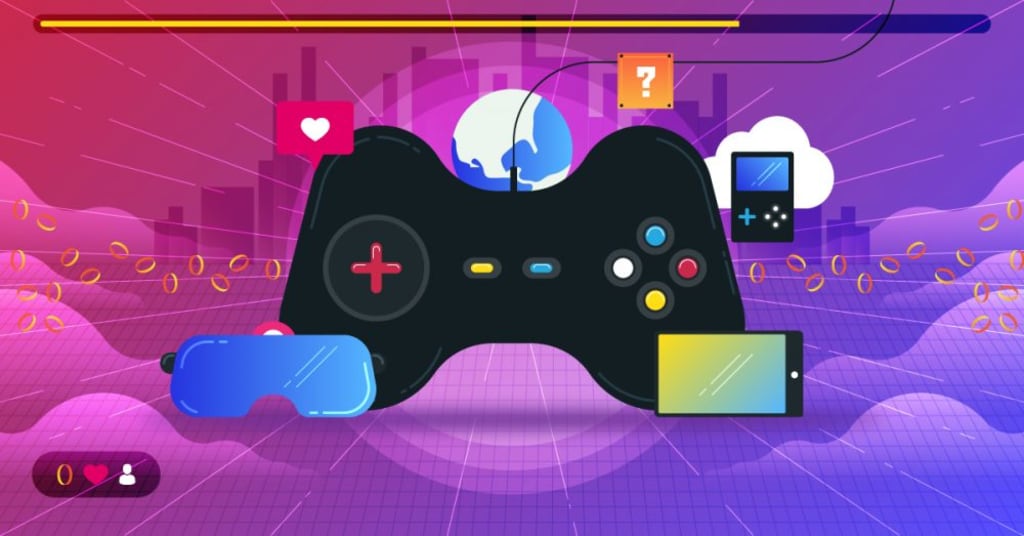The value of games in Education
Fostering engagement, Learning, and Skill Development

Games have long been considered a source of entertainment and leisure. However, their value extends beyond recreation, as they have increasingly found a place in education. Incorporating games into educational settings can enhance student engagement, promote active learning, and foster the development of essential skills. In this article, we will explore the various benefits of integrating games into education, including improved motivation, enhanced cognitive abilities, and the acquisition of problem-solving and critical-thinking skills.
Enhancing Student Engagement and Motivation:
Games offer a dynamic and interactive learning environment that captivates students' attention and enhances their motivation to participate actively. The immersive nature of games, combined with their intrinsic reward systems, encourages students to invest time and effort into mastering new concepts and skills. Through game-based learning, students can experience a sense of autonomy, competence, and relatedness, leading to increased engagement and intrinsic motivation. By transforming educational content into game-like experiences, educators can create an enjoyable and stimulating learning environment that inspires students to explore, experiment, and persevere in their educational journey.
Promoting Active Learning and Knowledge Retention:
Games provide opportunities for active learning, enabling students to become active participants rather than passive recipients of information. Through gameplay, students actively apply knowledge, make decisions, and solve problems, which enhances their understanding and retention of content. Game-based learning allows for hands-on experiences, simulations, and real-world scenarios that bridge the gap between theory and practice. By engaging students in meaningful and relevant contexts, games promote deeper learning, critical thinking, and the ability to transfer knowledge to different situations. Moreover, games often provide immediate feedback, allowing students to assess their progress, identify areas for improvement, and make adjustments, leading to a more effective learning experience.
Developing Problem-Solving and Critical-Thinking Skills:
Games inherently involve challenges, puzzles, and obstacles that require problem-solving and critical-thinking skills to overcome. By engaging in gameplay, students develop analytical thinking, strategic planning, and the ability to make decisions in dynamic environments. Games encourage students to think creatively, explore multiple solutions, and learn from their failures through a process of trial and error. They foster resilience, perseverance, and the willingness to take risks, as students are motivated to overcome obstacles and achieve success within the game's context. These problem-solving and critical-thinking skills are transferable to real-world situations, equipping students with valuable skills for their academic, professional, and personal lives.
Collaboration and Social Skills Development:
Games often involve collaborative play, fostering teamwork, communication, and social skills. Multiplayer games, both online and offline, provide opportunities for students to interact, collaborate, and negotiate with their peers. Collaborative gameplay encourages effective communication, coordination, and the sharing of ideas to achieve common goals. Through these experiences, students learn to work in teams, appreciate diverse perspectives, resolve conflicts, and develop empathy and respect for others. Games also offer a platform for students to engage in online communities, where they can exchange knowledge, seek advice, and learn from individuals with shared interests, promoting global collaboration and cultural understanding.
Integrating games into education holds immense value in fostering engagement, active learning, and skill development. By leveraging the inherent motivational and immersive qualities of games, educators can create dynamic learning experiences that captivate students' attention and promote deep understanding of academic concepts. Through gameplay, students develop crucial skills such as problem-solving, critical thinking, collaboration, and adaptability, which are essential for success in the 21st-century workforce. As technology continues to advance, harnessing the power of education
technology and game-based learning becomes increasingly important in preparing students for the future. By embracing games as educational tools, educators can tap into the natural curiosity and enthusiasm of students, making learning an enjoyable and rewarding experience.
About the Creator
Matshidiso Kasa
explorer of things
knowledge seeking being





Comments
There are no comments for this story
Be the first to respond and start the conversation.